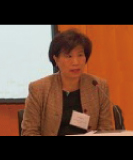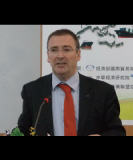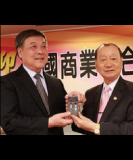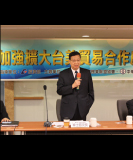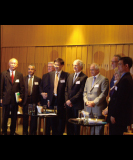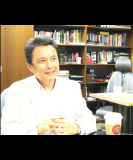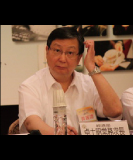You are browsing > Service Trade > Trade Info
APEC to Detail Next Steps for Trade in 2018APEC
Senior Officials from the APEC member economies will convene on 5-6 December in Port Moresby to detail their priorities areas of cooperation during Papua New Guinea’s inaugural APEC chairmanship in 2018.
They will build on the vision for trade and growth agreed upon by APEC Leaders in Da Nang, intent on sustaining the momentum of APEC economies and opening up new opportunities for people back home as the region becomes more integrated and digitally developed.
The proceedings will set the stage for APEC economies to follow through on their Leaders’ commitment to work towards a successful World Trade Organization Ministerial Conference in Buenos Aires on 10-13 December, having underlined APEC’s crucial role in support of a rules-based, free, open, fair, transparent and inclusive multilateral trading system.
“All APEC economies must be inclusive and not leave people behind in a changing world,” explained Papua New Guinea Prime Minister Peter O’Neill in remarks in Da Nang. “There is real concern, in many communities around the region, that globalization brings a lot of negatives.”
“APEC needs to keep building a bridge to ensure that people, both in developed and developing economies, are empowered to take advantage of the positives of globalization, so they can be a part of positive change and build better lives for their families.”
Papua New Guinea is home to more than 8 million people and a gateway to the Pacific islands. The economy is also a significant agriculture, fisheries, mining and liquefied natural gas producer, and will host APEC for the first time since becoming an APEC member a quarter century ago. Its per capita GDP has more than doubled over that span.
As Chair, Papua New Guinea will guide the next steps in APEC to boost economic integration and trade, and equip workers and businesses of all sizes, in all parts of the region, to confront profound changes underway in market competition, automation and skills demand.
Enabling infrastructure development, digitally driven trade and reforms in education, training and social safety nets will be among the policy issues on the table. The aim is to improve business conditions, job prospects and wages needed to foster inclusive and sustainable growth.
“As an emerging economy, we are coming out of a very traditional society into a modern economy in a space of one generation, which gives us great challenges and also opportunity,” said Prime Minister O’Neill.
“Our aim is to build the technology infrastructure that will give people the opportunity to participate in the global market, through employment and business opportunities,” he continued. “We all live in a global community that is changing very fast. No country can go it alone. We must engage through APEC and other important regional and global fora.”
Addressing climate change and its effects on lives and livelihoods across APEC and neighboring islands will be a complementary focus.
“There are real challenges before all APEC economies in dealing with climate change,” said Prime Minister O’Neill. “In Papua New Guinea, we have the world’s first climate change refugees, people who were displaced from their traditional land because of rising sea levels.”
“We must address the causes of climate change and also strengthen defenses against extreme weather,” concluded Prime Minister O’Neill. “Those are things that we would like to highlight.”

